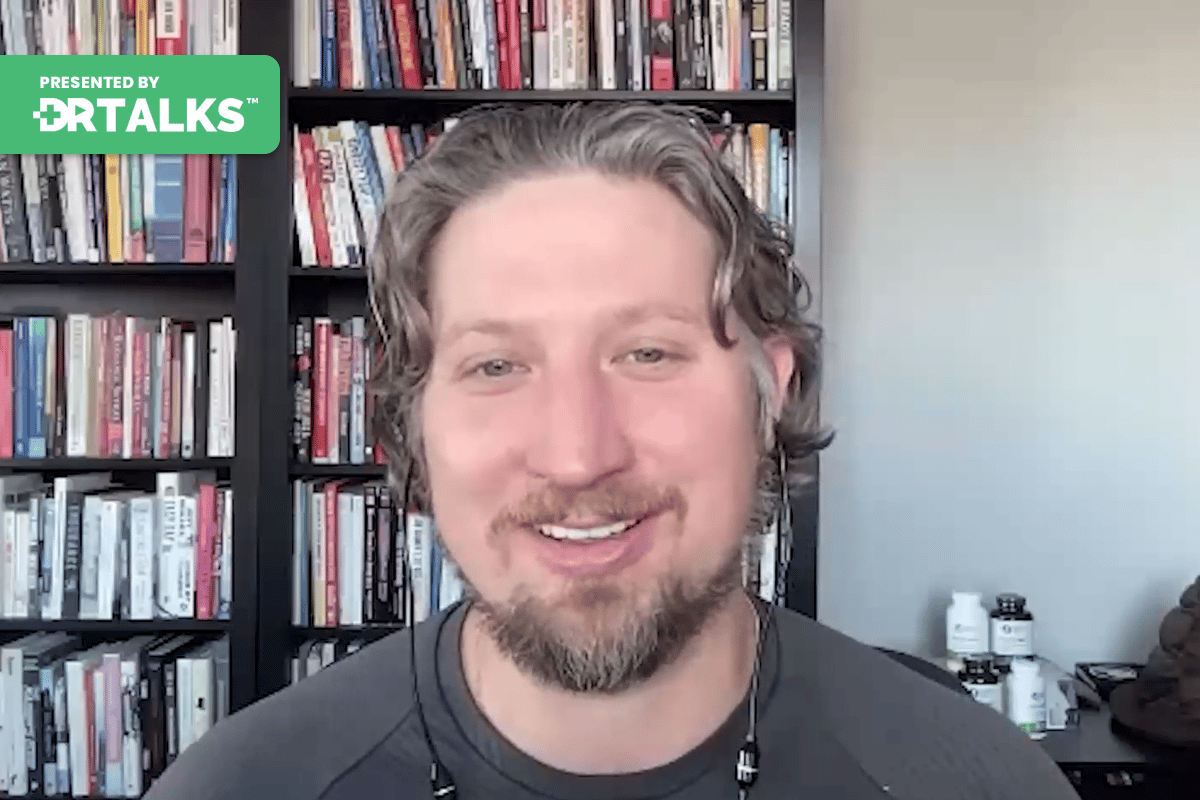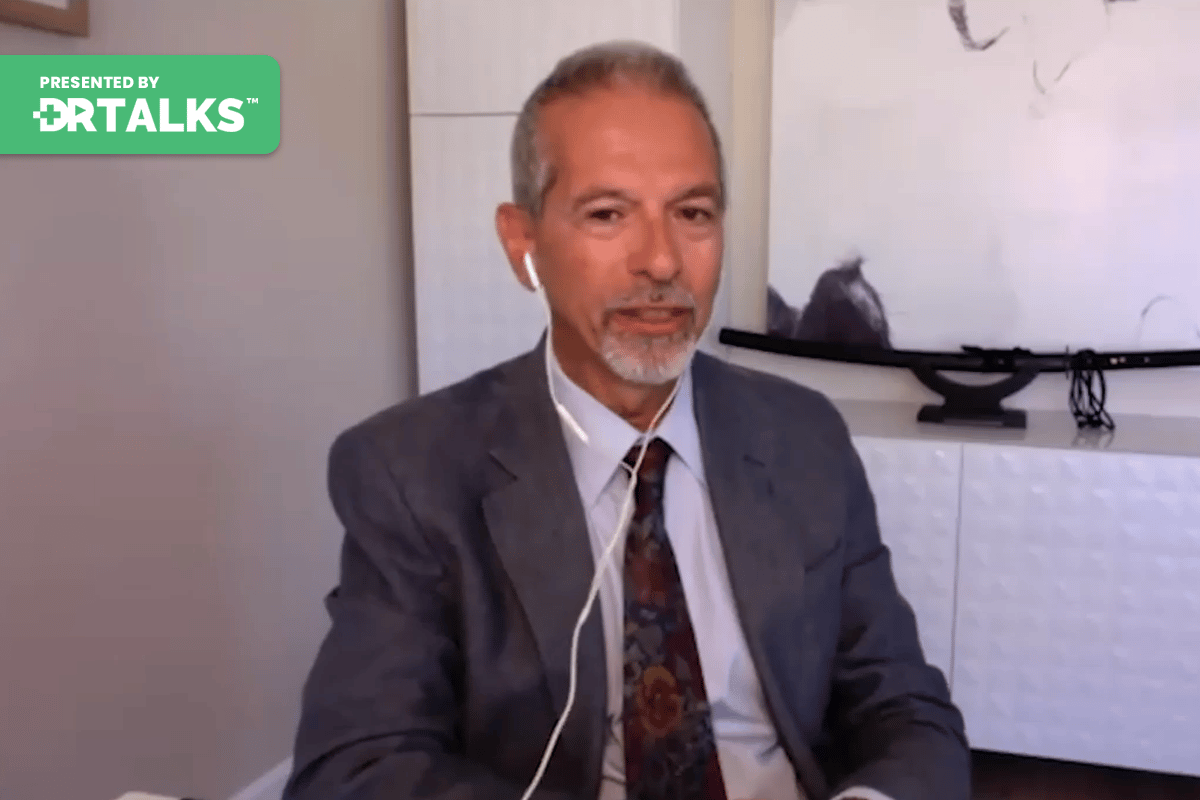So, chronic fatigue syndrome and mental health are so very related. And I want to talk a little bit about the root causes of chronic fatigue syndrome today because when we are thinking about things like mental health, when we’re thinking about anything we really want to get to the root cause. And if chronic fatigue syndrome and being fatigued is part of what’s contributing to your mental health imbalances, we want to take a step back and we always want to ask why. We always want to ask why stuff happens. So if we have mental health imbalances we want to say why and if mental health imbalances are contributed and they’re the root cause of that in part is chronic fatigue chronic fatigue syndrome. We want to ask why we want to continue to ask why until we get to the root. Remember having a diagnosis such as by polarization or anxiety or depression. That’s great to have a diagnosis because that helps us understand what’s happening but it’s still not helping us understand why. So if you have some of these mental health imbalances and you have chronic fatigue syndrome, we also want to with chronic fatigue syndrome asked why really really learn why the chronic fatigue is happening super important. So when we’re getting to chronic fatigue syndrome this is how we can tie in some of our conversation on microbes. There’s a lot of ways that microbes are connected to chronic fatigue syndrome. So let’s start first with the gut.
So the gut obviously is a place where we absorb nutrients. So certain nutrients such as R. B. Vitamins such as CO Q. 10 these are examples of nutrients that can really contribute to having enough energy. What we see is when we have microorganisms in our gut out of balance whether it is our good microorganisms that are out of balance or we have bad microorganisms, we have infections or overgrowth. This can change our our nutrients so oftentimes it’s easy for people to understand that if we have infections in our gut that we have some inflammation on our gut lining, we might not be absorbing our nutrients as well as we want. So that’s a pretty easy thing for a lot of people to grasp. But another layer of this that a lot of people don’t understand is our good microbes. So the probiotics, the normal flora in our gut actually help to activate some of our nutrients and to put them into a form from our food to take them and to process them and activate them when so we can use them. So we can have situations for example where we have imbalance in the normal flora, in our gut, in the healthy microorganisms and when we have imbalance in the normal flora of our gut, what winds up happening is we don’t activate our vitamins and nutrients as well as we want and then we can’t use them. And so this is another way that we can have a relationship of microbes to nutrient deficiencies to problems with say depression, anxiety and other things.
In addition nutrients like B. Six for example is really necessary to make things like serotonin to make things like dopamine are happy neurotransmitters are happy hormones, so we need our gut to be working well, we need proper microbial health to make sure that we are getting good amounts of B6 into our body so that we can create our happy hormones. So that’s an example of how microbes can be connected to two things like chronic fatigue syndrome, which can be connected to things like mental health. We also want to think about other types of microbes in our body. For example, marcons is a form of staff that’s very resistant. I call it sometimes I call it Mrsa. So those of you that have heard of Mrsa, Mrsa has talked a lot about in hospital settings because people wind up getting Mrsa oftentimes when they’re immuno compromised, which happens a lot in hospitals. But Mark owns is another form of staff, just like Mrsa is. And for those of you that have heard of Mrsa, I call marcon’s Mrsa evil twin sibling. So Mark is basically a former staff that lives oftentimes very far back in our sinus cavities and Mark on this particular form of staff, this micro can actually dis regulate our hypothalamus, the part of our brain that’s a signaling center for things like our thyroid, our adrenals our sleep cycles. So we have markets, we have this microbial infection that can lead to things like lowering of adrenal hormones lowering of thyroid hormones.
These types of hormones that give us energy and guess what? When we have energy, we have a little bit of an easier time managing our mental health and our mental happiness. And so this is another example of a microbe that can be related to chronic fatigue and mental health. And what’s also interesting is when we run stool cultures and we look for the health of the microorganisms in our gastrointestinal track. Sometimes we can find staff in our stool, right? So we can have an overgrowth of staff in our stool. What we can also have an overgrowth of staff in our sinuses. So for some people it winds up happening is we wind up almost transporting the microbes from the from the gastrointestinal track to our sinuses and back and forth. So that can be one thing that winds up happening. This is something that we’ve observed clinically and that we can sometimes see happening where it’s like we need to treat the microorganisms in both locations. Often times we talk about in health, we talk about transferring microorganisms from person to person, right? So we’re worried about getting our friends sick or family members sick and were sick. But we don’t talk enough about what about transferring infections from body parts? Body part. That if we’re doing treatments that are for example, targeting the staff in our gastrointestinal tract, if we have that, that we need to also be considering, do we have staff in our sinus cavities.
Because if we have a population of a microorganism in one area and another and we’re only treating the one area, it could just wind up coming back and we could be self almost self infecting other areas of our body. So that’s also really important when it comes to microbes, when it comes to chronic fatigue when it comes to mental health. We also want to think about other things that could for example disrupt thyroid function and adrenal function. So I mentioned, Marcons could do that. Another thing that we see that can really do that are mycotoxins and mold toxins. So mycotoxins mold toxins, there’s a little bit of a sometimes a misunderstanding of mycotoxins and mold toxins. So mycotoxins are toxins from mold and mycotoxins are toxins that when we breathe in mold spores, the toxins for some people can remain in their body. We can also have situations with mold where mold spores themselves will make a home in our body and we can have mycotoxins being produced by the mold that they’re actually in our body. So a couple of different options here. We can breathe in more world spores from our environment.
The mold spores can make a home causing problems inside of us or we can just breathe in the mold toxins from our environment and the toxins can build up either way. Either situation that can happen here, we can have elements where we have these toxins, these infections inside of our body, leading to things like like mold toxins, for example can negatively impact the cortisol level that gets produced the adrenal hormone. While a lot of people think of cortisol as bad cortisol is actually good in the right amounts, it’s necessary. We would not be alive if we didn’t have cortisol. So proper amounts of cortisol are really necessary for energy, right? And for actual like blood sugar stabilization, these types of things that can be related to mood and mental health. And so in addition to that, these mycotoxins can also impact thyroid and can turn down thyroid hormone production and leading to problems there. Now one of the things that I always like people to be aware of, I work with a lot of these types of conditions in my medical practice, I work with a lot of thyroid, a lot of adrenals, a lot of mycotoxins, a lot of other chronic hidden infections and toxins. And one of the things that comes up often times is where am I getting things like mold toxins and mold toxins are in my body when they’re impacting my health, Where are they coming from?
So often times we’re living or working in mold and here’s what’s really important to understand Is people are genetically predisposed to having mold illness. So meaning there are certain amount of people, it’s estimated to be about 24% of the population who have an anomaly in their immune system where their immune system does not recognize the toxin from mold and when it doesn’t recognize the toxin from mold, it does not eliminate the toxin from mold and that’s how we get mold toxins building up in our body. And so because there’s this genetic component, this is an explanation for people when you’re thinking about this and you’re like, well it can’t be, it can’t be mold toxins causing my mental health issue because I’m sick and my partner’s not or I’m sick and my roommates not whatever it is, right? So it can be coming from my house. You don’t want to think that way because it’s just a genetic predisposition. So we can have a moldy house or a moldy workplace and we can have some people sick because they’re genetically predisposed to not be able to detox the mold toxin and other people don’t have that gene, so they don’t have those problems.
So that’s one of the biggest things I hope you get out of this is understanding that when we are talking about mental health, there can be this chronic fatigue component of things with all of these different causes of it and from the mold cause issue, there’s a lot of different reasons for mold for some people to be sick from mold and other people not to be. And then another thing from a micro perspective is really thinking about our micro pictures such as lime bartonella some of these insect borne infections and I want to bring this up because you’re going to hear about a lot of different infections throughout the course of this particular summit and we really want to be thinking big picture and we really want to be thinking about testing. So that’s the best way to identify and from the lime and chronic infection picture. One of the take home points I want you to understand in the short presentation before we start introducing other speakers is I want to make sure you understand that the testing is not that perfect. And you really need to go to a Lyme literate clinician who understood How to properly test for line for Bartonella’s for some of these other chronic hidden infections that can cause chronic fatigue that can cause mental imbalances. You really want to make sure you’re getting the right testing done. And so the first line of testing for lyme disease, for example, the first line of testing has been estimated to have a 66% chance of a false negative.
And so a lot of people are running around with line with some of these other, these chronic infections contributing to their mental health problems and they had something like line ruled out and given a false negative and they think they’re good, they think they crossed it off their list but they actually haven’t because of the huge rates of false negatives. So you’re gonna hear some great speakers on this particular summit are really encouraging to take everything to heart and to really think about when you’re thinking about getting to the root cause and asking why I really want you to be thinking about, hey, if it’s an important thing when you’re getting to the root cause to make sure you’re also working with the clinician that understands how to test properly, because a test to get to the root cause is truly only as good as the actual test, but also truly only as good as the clinic mission that is actually supporting and teaching you the information from that test as well. So that’s my talk today, my presentation on chronic fatigue, its relationship to mental health and its relationship to microbes. I hope you have enjoyed it and enjoy the rest of the presentations today. Take lots of notes and we’ll see you another time again. I’m Dr. Diane Mueller until next time.











